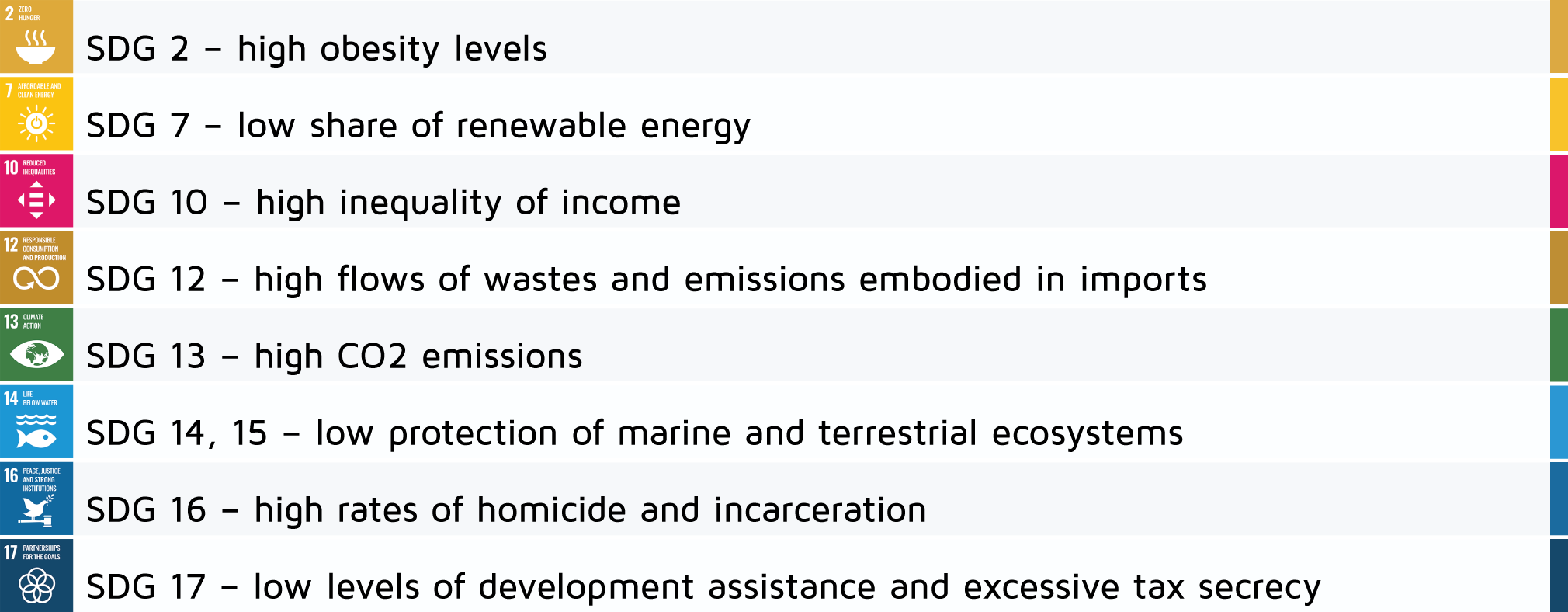The states of America have recorded poor development in the achievement of the Sustainable Development Goals (SDGs). More specifically, none of the 50 states is on track to reach the SDGs by 2030 and every state is moving backwards in relation to at least 20% of their indicators.
This is the conclusion of the 2021 SDGs index report of the U.S. published by the Sustainable Development Solutions Network (SDSN). Using historical data (generally from 2015-2020), the report also estimates whether progress made at this pace will be sufficient to achieve the SDGs by 2030.
Internal ranking
According to the report, the region with the best performance is New England with Vermont in first place followed by Massachusetts in second, Maine – fifth, and New Hampshire, seventh. The lowest ranking states are in the South and Appalachia with Arkansas in 47th place, Louisiana in 48th place, West Virginia in 49th, and Mississippi in 50th.
To achieve the SDGs, the states need to improve their scores by an average of about 54 points (out of 100) over the next nine years. For reference, in the last five years, the American states have improved their ratings by an average of just three points, or little over half a point a year. Yet, reaching the SDGs by 2030 seems unlikely since every state is moving backwards in terms of at least 20% of their indicators.
International ranking
The general reversal of the United States’ progress toward the SDGs is also marked by its ranking among other nations. In the global Sustainable Development Report 2021, the country ranked 32nd in the world, well behind most high-income countries. The U.S. particularly lagged behind in relation to:

Growing inequality
These shortcomings expose the enormous and growing inequality within American society. The country is strongly divided by class, race, gender, and geography. The SDNS report and its extended analysis, The U.S. Failure to Deliver on the Promise of Racial Equity, emphasize the conditions of the poor and excluded, especially with regard to racial and ethnic disparities.
“The evidence suggests that the large gaps in social and economic conditions in America are actually worsening on several crucial dimensions, such as wages, residential segregation, and child poverty”.
Causes behind poor delivery on SDGs
The report states that COVID-19 has been one of the factors that has hindered the delivery of the SDGs and its impacts highlight the need for universal health coverage and universal access to vital social and physical infrastructures. Many U.S. residents do not have access to adequate healthcare, broadband, food, or employment. The COVID-19 “stay at home” orders underlined the disparity in access to adequate and affordable housing. Racial inequality among the homeless is so widespread that every state received a zero score out of 100 possible points. These areas required intervention before the pandemic whereas now the situation has become even more urgent.
SDSN Director Jeffrey Sachs states that the SDGs have not yet reached a prominent position in U.S. politics and public policy. While many universities, businesses, NGOs, and cities do align with the SDGs, the commitment of the federal and state governments remains much weaker especially when compared to the importance given to the SDGs in peer nations such as those of the European Union.
The Trump administration not only disregarded the SDGs in the policy-making process but avoided referring to them in U.S. diplomacy. The report is intended not only to comment upon the reversal in the U.S. in terms of the progress being made towards the SDGs but also to stimulate a new national commitment to these which have been adopted by all 193 member states of the United Nations.
Measures to secure progress
Some proposals from President Joe Biden on extended healthcare, access to education, and sustainable infrastructure and also the administration’s initial goals on democracy, good governance, and the modeling of peaceful and inclusive societies are strongly aligned with the SDGs and would help advance America’s progress towards achieving them.
Following the release of the Sustainable Development Report of the United States 2021, a U.S.-UN Re-Engagement Roundtable was convened in Washington. This resulted in short- and medium-term recommendations for the Biden administration, steps to rebuild U.S.-UN relations, and a renewal of attention being given by America’s leadership to priority areas for its foreign policy including regarding sustainable development.
The United States seems to undermine the challenge and nature of financing SDGs and needs to leverage sustainable development contributions from diverse actors including the private sector. In an effort to better balance environmental protection and economic development goals, it is recommended the US applies a multi-stakeholder-government alliance to ensure that the SDGs are upheld in the global supply chain and within private and public multinational enterprises.
The SDGs are to be promoted in order to support democratic ideals. In turn, various UN initiatives and projects in support of the implementation of the SDGs need to be made known to the general public and to be addressed by local communities.
“By targeting the needs of local communities, the broader global SDGs agenda can be met more effectively – in short, by introducing a “local to global mentality.” In part, this is because the struggles at the local level provide indicators of where the “choke points” are occurring that can impede and even halt sustainable development,” concluded one of the roundtable recommendations.

